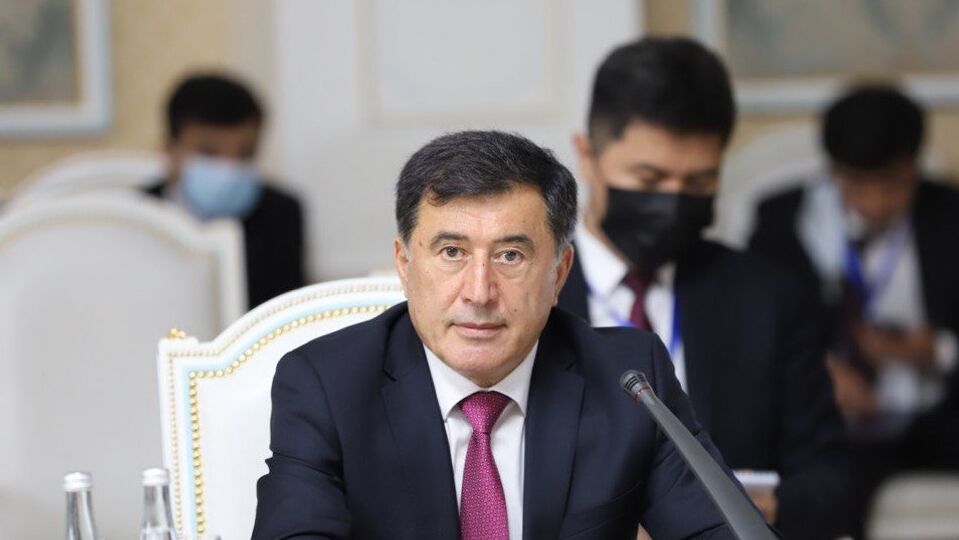On 14 July 2021, SCO Secretary-General Vladimir Norov attended a meeting of the SCO foreign ministers, held in Dushanbe, Tajikistan.
The Secretary-General noted that despite all pandemic-related problems, the Tajik Chairmanship was effectively and consistently working to promote the SCO's development and to enhance its prestige.
"There is no doubt about it that the upcoming anniversary summit in Dushanbe will be a historic event: the member countries have drawn up a large package of documents as part of the preparations for it and they have done a lot of work to translate into practice the latest decisions and joint statements by the SCO leaders," he said.
He stated that during its two decades, the SCO, while faithfully abiding by the Shanghai Spirit principles, had confidently consolidated its role as one of the leading trans-regional associations of a new type to provide a comprehensive response to challenges and security threats, ensure sustainable economic development, intensify dialogue between civilisations, and elaborate joint positions on current international issues with account taken of the interests of all the SCO countries.
Mr Norov stressed that the COVID-19 pandemic had created a favourable environment for a surge in cybercrime against the critically important infrastructure and for internet propaganda and recruitment directed at the most vulnerable social groups, primarily young people.
In this context, he mentioned progress achieved in the matter of improving the mechanisms to counter new challenges and security threats to the SCO member states, progress based on the parties' initiatives, as well as the approval of the planned documents to fight the "three forces of evil" at the upcoming summit, ensure international information security and implement the Anti-Drug Strategy.
With regard for the need to reach a common SCO position on the Afghan issue and to take the necessary steps to assist Afghanistan's transition to peaceful life and economic revival, Secretary-General Norov stressed the importance of the SCO-Afghanistan Contact Group approving as soon as possible a plan of practical measures to help that country with its socio-economic revival. He reminded the participants of the need to devise and implement joint infrastructure projects, specifically to create "green" corridors for the unhindered transportation of priority necessities, optimise multimodal traffic, establish logistical centres for transborder e-trade, and expand the use of digital technologies and intellectual systems in the transport sector.
He attached particular importance to the fact that the Tajik Chairmanship coincided with the SCO Year of Culture, something that raised cultural and humanitarian cooperation to a new level. A number of spectacular events were organised, including those timed for the celebration of the SCO anniversary. These events were aimed at strengthening mutual understanding, mutual respect, friendship and good-neighbourliness between the SCO countries.
Mr Norov emphasised that the further consolidation of partner ties with the UN, its specialised agencies and regional organisations remained a priority for the SCO. In this context, he expressed gratitude to Tajikistan for supporting the prompt promotion and approval by the 75th session of the UN General Assembly of a meaningful resolution on the advancement of UN-SCO cooperation.
He praised the success of the first meeting between the SCO national coordinators and representatives of the observer states and dialogue partners, held in Tashkent in June 2021.
"Today, the delegation heads have provided a profound analysis of the situation in the region and outlined prospects for the future. They have realistically characterised the international developments. This assessment is of particular importance for SCO mechanisms and also for the Organisation's permanent bodies, which will certainly be taken into account in its practical activities," Mr Norov said in conclusion.
